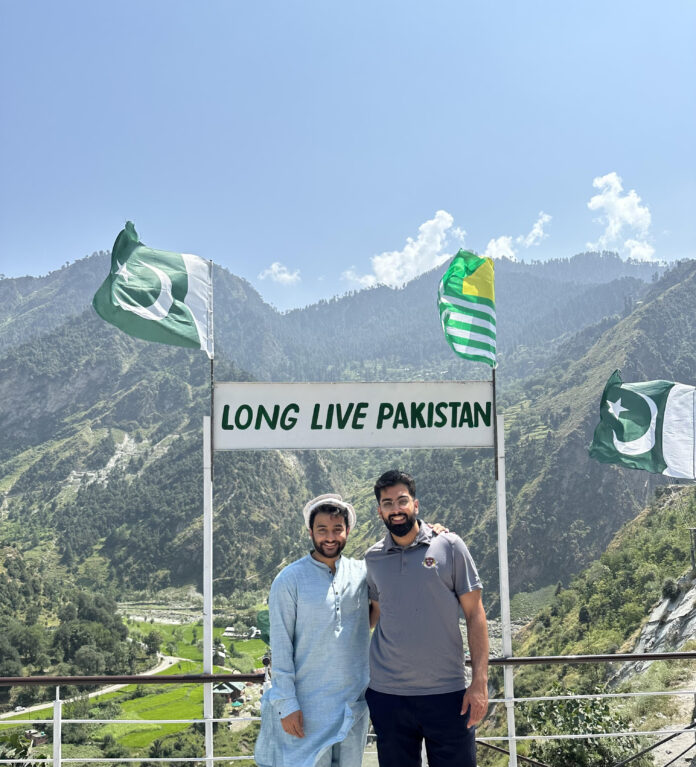In the throes of 1L year at Harvard Law School, we often heard our peers lamenting the insularity of American legal education and its presiding academy.
Forced to pore over the intricacies of some constitutional device invented by John Marshall two centuries ago, our classmates complained bitterly about the narrow focus of our curriculum on domestic law and the absence of contemporary international and comparative perspectives. While there may be some truth to these grievances, our extraordinary journey from WCC to the Supreme Court of Pakistan in the foothills of the Himalayas has shown us just how remarkably versatile our 1L education can be when applied in unexpected and unfamiliar settings.
It all began with a simple question we posed to Justice Syed Mansoor Ali Shah, the incoming Chief Justice of the Supreme Court of Pakistan, during an informal chat in Austin Hall last year. We asked if he had ever seen law students or lawyers, trained in the Western jurisprudential traditions of England or the United States, succeed in what seemed to us the wholly alien world of the South Asian legal system. To our surprise, he answered our question with a proposal: come to Islamabad, he said, and he would have us serve as summer law clerks at the Supreme Court during his next term.
Uncertain about the practicality of such a venture but freed by the end of our regular summer jobs in July (I’d just finished my 1L internship in Tunisia, while Saeed was wrapping up his 2L summer in New York), we jumped at the chance to spend a few months bridging the gap between our American legal training and our Pakistani heritages. Little did we know that this casual conversation would lead us to an incredible weeks-long adventure that would not only enrich our understanding of Pakistani jurisprudence but also underscore the value of our 1L education.
The challenges we faced were, in some respects, unlike anything we had encountered in our 1L years. From the moment we stepped foot in Pakistan, we were immersed in a world where the legal landscape bore little resemblance to what we had studied at Harvard. On our first day on the job, we watched Supreme Court oral arguments with fascination, as lawyers and justices alike flitted between posh, Londoner-accented Queen’s English and an equally fluent Urdu, with Punjabi idioms sometimes thrown in for verve.
Later, we were invited to make motorcycle trips to the much older district courts of Rawalpindi, where we saw colonial-era courtrooms –– still marked by a distinct British architectural style –– crowded in by dozens of tightly packed law offices hosting small firms and solo practitioners desperately competing to try and scrounge out a living in the environment of the katcheri (court complex).
However, the skills we had honed during our 1L year turned out to be surprisingly useful in navigating this unfamiliar territory. In a foreign legal system with its own complex set of precedents, we found ourselves stuck in the cavernous Supreme Court basement library for days, poring over hundreds of pages of the leading constitutional case law. Luckily, the endurance we’d built making our way through readings for Legislation and Regulation with Prof. Matthew Stephenson, J.D., PhD 03’, or CivPro assignments for Prof. Stephen Sachs, B.A. 02’, suddenly proved very useful.
The agonizing hours spent on our LRW bear memos and veterinarian briefs bore fruit as we navigated new databases like the Pakistan Law Site with ease. Perhaps the most intriguing application of our 1L education came, somewhat surprisingly, in the realm of procedure. We found ourselves comparing and contrasting the use of concepts such as original jurisdiction between SCOTUS and the Supreme Court of Pakistan.
While 1L Civil Procedure had taught us the basic idea of original jurisdiction and its limited application in the jurisprudence America’s highest Court, we now grappled with the much more expansive use of suo moto (court action without a motion) powers, original dockets, and public interest litigation in the workload of its sister institution in Pakistan.
Our experiences in Pakistan have since culminated in a comparative constitutional law paper now in the process of finalization. The paper contrasts the appellate-focused US Supreme Court with the emergence and growth of first-instance public interest litigation at the Supreme Court of Pakistan. We are thrilled to announce that our paper has already been accepted for publication in some of Pakistan’s leading law journals.
Our journey from Harvard Law School to the Supreme Court of Pakistan is a testament to the adaptability and power of our 1L education. It shows us that the skills we developed in the American legal system can be effectively applied to tackle complex legal issues in a variety of contexts. As we continue our legal careers, we are committed to building bridges between institutions in our countries of study and our countries of origin, creating opportunities for legal talent to thrive and make a meaningful impact on the law globally.
As much of a nightmare as 1L can be, our experiences halfway across the world remind us that the skills acquired during our first year can transcend borders and prove their worth in unexpected ways.
Hussain Awan is a 2L at Harvard Law School, a contributor to Harvard Law School’s Global Anticorruption Blog, a Chayes Fellow, and a former clerk to Justice Syed Mansoor Ali Shah. Awan attended McGill University, graduating as class valedictorian.
Saeed Ahmad is a 3L at Harvard Law School active in the Harvard Association for Law & Business and the Admissions Fellow program. He graduated from UCLA and worked at LVMH before law school. He is a former clerk to Justice Syed Mansoor Ali Shah.


